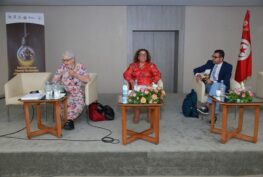16 May 2017: Somalia’s President Mohamed Abdullahi Farmajo, elected in February, has declared a state of war against the Al-Qaeda affiliate. The president offered a 60-day amnesty to disaffected members of the group in April and has pledged to eradicate it within two years. Al-Shabaab emerged from the Islamic Courts Union that was ousted from the Somali capital, Mogadishu, by Ethiopian forces in 2006. The militants have carried out major attacks in Somalia and neighboring countries, such as Kenya, and regularly carry out suicide bombings in the Somali capital Mogadishu, killing civilians, government officials and soldiers. Michael Keating, the Special Representative of U.N. Secretary-General Antonio Guterres in Somalia, tells Newsweek that while the offer of an amnesty was a good start, it would not be sufficient to placate the militant group. “I don’t think an amnesty on its own is going to work. It’s a signal more than a strategy, saying ‘We do not consider you all to be dyed in the wool ideological enemies,’” says Keating, speaking on the sidelines of a major international conference on Somalia in London Thursday. “The amnesty is part of that carrot approach, but you also need the stick approach, particularly if they’re using violence to advance their political objectives.” So far, Al-Shabab has shown no signs of letting up its attacks. The militants dismissed Farmajo’s declaration of war and offer of amnesty as an effort “just to please the West.” At the London conference, which was chaired by the U.K. and brought together representatives of over 40 partners to pledge support for Somalia, British Prime Minister Theresa May noted that Al-Shabab had tripled the number of attacks it carried out in Mogadishu, without giving a specific timeframe.
Experts believe that Al-Shabab consists of different elements, including moderates and vulnerable youths who have been radicalized by the group, as well as a hard core with transnational jihadi objectives. The group’s former leader Ahmed Abdi Godane— killed by a U.S. strike in 2014 — pledged allegiance on its behalf to Al-Qaeda. Previous Somali governments have attempted to reach out to the militants. Former Somali president Hassan Sheikh Mohamud, who was in power from 2012 until Farmajo’s election victory in February, told Newsweek in April that lower-ranking militants had benefited from an amnesty programme ran by his administration, but that negotiations with high-level Al-Shabaab fighters were not possible due to the fact that many are regarded as international terrorists by the United States and other bodies. “At a certain point, there is typically a political negotiation with the hard core with the hope of, at a minimum, dismantling the integrity of the insurgency. But I don’t think we are anywhere near there yet,” says Keating. (Source: Newsweek)










No Comments